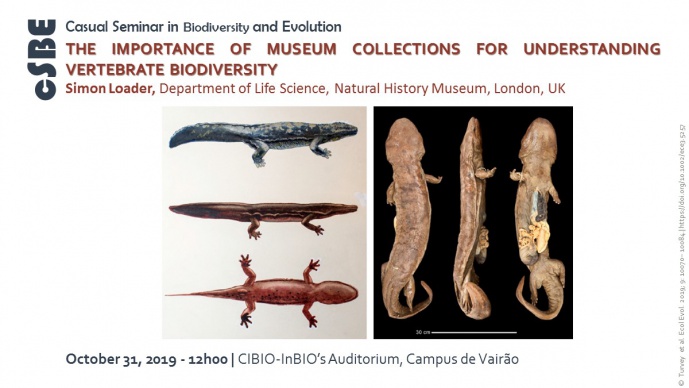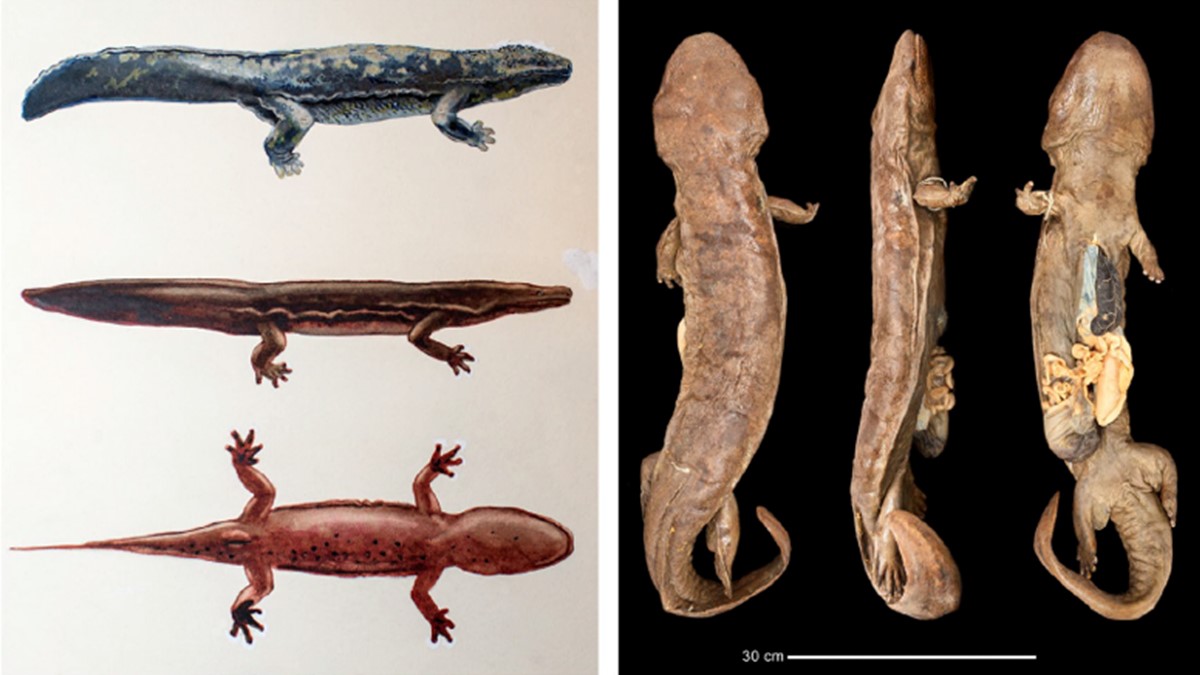THE IMPORTANCE OF MUSEUM COLLECTIONS FOR UNDERSTANDING VERTEBRATE BIODIVERSITY

CASUAL SEMINAR IN BIODIVERSITY AND EVOLUTION

Museum specimens are important documents of biodiversity but often inaccessible and difficult to get data from. In this talk, I will discuss recent case studies from the Vertebrate collections of the Natural History Museum in London which outline the recent advances which have allowed us to unlock the potential of museum collections. Museums are important repositories of data and unlocking their potential will be key to understanding biodiversity and its change.
Dr Loader has recently taken up the position as Principal Curator in Charge of Vertebrates at the NHM (2017) - managing a collection of over 3.5 million specimens. Previously he was a lecturer in Biogeography/Zoology at the University of Basel, Switzerland, and The University of Roehampton, London, having done his degree/PhD in London and Glasgow Universities. Dr Loader's research encompasses Africa as his geographical area of research, and amphibians are his group of expertise. Using both Africa and vertebrates Dr Loader applies a range of approaches in systematics to investigate the current patterns and processes behind the maintenance and formation of biodiversity.
[Host: Angelica Crottini, Biogeography and Evolution]
Image credits: Turvey et al. Ecol Evol. 2019; 9: 10070– 10084.| https://doi.org/10.1002/ece3.5257